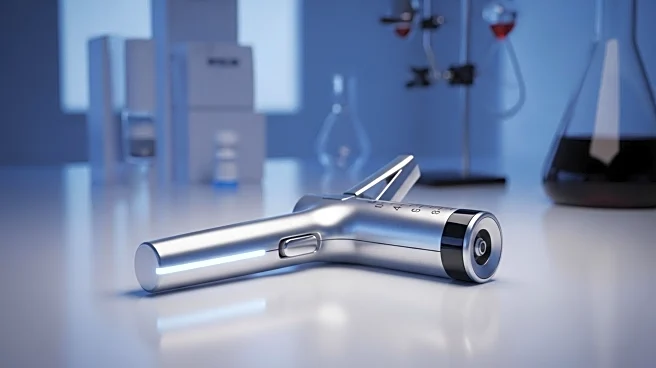What's Happening?
The FDA has approved a new subcutaneous version of MSD's cancer immunotherapy drug Keytruda, known as Keytruda Qlex. This formulation allows for administration by healthcare professionals in just a few minutes, compared to the traditional 30-minute intravenous infusion. The subcutaneous version is approved for most solid tumor indications already covered by Keytruda, which is MSD's top-selling drug, generating over $15 billion in the first half of the year. The new version aims to reduce patient 'chair and treatment' time by half and could potentially extend the patent-protected life of Keytruda as biosimilar versions of the IV form enter the market. MSD anticipates that the subcutaneous version could eventually represent 30% to 40% of all patients using pembrolizumab.
Why It's Important?
The approval of the subcutaneous Keytruda is significant for both patients and MSD. For patients, it offers a more convenient treatment option, potentially improving their quality of life by reducing time spent in healthcare settings. For MSD, this development is crucial as it faces the impending loss of patent protection for Keytruda starting in 2028. By introducing a new formulation, MSD can maintain its market share and revenue from Keytruda, which accounts for nearly 60% of its total turnover. Additionally, the subcutaneous version could help MSD compete with rival cancer immunotherapies from companies like Bristol-Myers Squibb and Roche, which have also developed subcutaneous versions using Halozyme technology.
What's Next?
MSD is currently involved in a patent dispute with Halozyme, which claims that the berahyaluronidase alfa component of Keytruda Qlex infringes on its intellectual property. MSD is seeking to invalidate Halozyme's patents, arguing they are overly broad. The outcome of this dispute could impact the rollout and market strategy for the subcutaneous Keytruda. Meanwhile, MSD is preparing for the loss of market exclusivity by expanding its pipeline and implementing cost-saving measures, including job cuts and the abandonment of certain investment programs.
Beyond the Headlines
The introduction of subcutaneous Keytruda highlights the ongoing evolution in cancer treatment, emphasizing patient convenience and the strategic maneuvers pharmaceutical companies must undertake to sustain their market positions amidst patent expirations. This development also underscores the competitive landscape in cancer immunotherapy, where companies are leveraging technology to enhance drug delivery and maintain their competitive edge.










